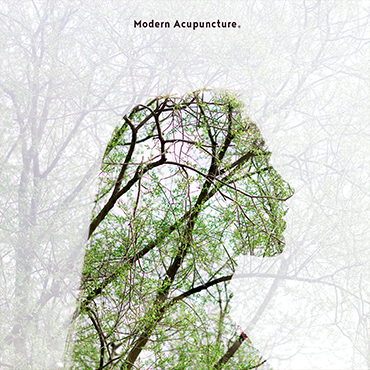STRESS: The Human Connection?

What do busy moms, high powered business women and men, students, professional athletes and you all have in common? Stress!
Stress affects all different people and comes in many different forms. Now more than ever we are constantly on the go, placing higher and higher expectations on ourselves and taking on more responsibilities. Couple that with chemicals in the air, our food and the products we use every day and stress is nearly inescapable.
Luckily, our body is designed to handle a certain amount of stress, otherwise, we wouldn't last a day in normal modern life. However, when stress is rampant and we don't do anything to manage it, it becomes a problem that can affect all aspects of our lives.
Having trouble sleeping? That’s probably stress related.
Indigestion? Yep, stress again.
Anxiety? Stress.
Irritability? Stress.
Muscle aches? Stress.
Lack of focus? You guessed it, stress!
It doesn’t stop there. Studies show that heart disease, diabetes, accelerated aging, Alzheimer’s and even premature death can be a result of unmanaged stress.
What exactly is stress, anyway?
Stress is defined as a physical, chemical, or emotional factor that causes bodily or mental tension. This is a very broad definition because stress comes in many different forms and is largely based on the perception of the person being affected by the stressful situation. However, the body’s response to stress is roughly the same (although to varying degrees) regardless if it is a tight deadline or an escape from a burning building.
Any stressful situation can trigger the release of hormones that will initiate physiological responses designed to help you escape the perceived stressor. This is the activation of the sympathetic nervous system and is often called the “fight or flight” response. It provides the body with a quick burst of energy via increasing heart and respiration rate, and the mobilization of fats and glucose into the bloodstream for immediate use. This is a good thing if you do happen to need to escape a life-threatening situation, but what if it’s just another deadline, followed by a traffic jam, followed by an irritating phone call or any of the constant barrage of small stressors you encounter every day? Your body responds the same way, and before you know it fight or flight isn’t just a response, it’s your new normal. This is when it becomes a problem, symptoms start to manifest, and you are at greater risk for more serious conditions.
It’s all about balance
Our bodies thrive in balance with nearly equal parts of sleep and waking, stimulation and relaxation, hot and cold etc. It’s the yin and the yang and the basis of all of Chinese Medicine. Too much or not enough of any of these things can lead to imbalance and symptoms. Stress is no different. Activation of the sympathetic nervous system (fight or flight) is there to save our lives when we need it, but too much of it becomes a problem. We also need the activation of the parasympathetic nervous system, or the “rest and digest” response to balance it out. Under normal circumstances, the stress response will subside and the rest and digest response will have the chance to kick in. However, when perceived stress is constant this doesn’t always happen. The body is so focused on survival that it doesn’t take the time to repair and heal. That is why that sprained ankle from six months ago still bothers you, your digestion is off the rails and you haven’t had a decent night of sleep in weeks.
Acupuncture can help
Just showing up for an acupuncture appointment can help reduce your stress levels, because it gives you a much-needed time-out. You get thirty minutes to turn off your phone and your brain and just relax. Adding the treatment into the mix only multiplies the benefits. Research has shown that acupuncture is an effective treatment for reducing chronic stress by regulating the hormones related to the stress response. It is also a very effective method for activating the parasympathetic nervous system to help you rest, digest and heal. It’s adding some much-needed yin (rest) to our overabundance of yang (stress).
How many treatments will you need?
If you already have stress-related symptoms then it is recommended that you receive frequent treatments in the beginning (generally 3+ times/week) and can taper off as they begin to subside. Even if you are symptom-free, chances are you are not stress-free. You can still benefit from regular treatments. At least two times per month is recommended for stress relief and prevention.
How to get started
Start by finding a Modern Acupuncture clinic near you by going to the location tab on our website. We have clinics all across the country and more opening every month. Book your appointment online or call your local clinic and speak to one of our friendly Zen Advisors. We can’t wait to meet you and help you live your happiest and healthiest life.
Sources:
https://www.mayoclinic.org/healthy-lifestyle/stress-management/in-depth/stress-symptoms/art-20050987
https://www.health.harvard.edu/staying-healthy/understanding-the-stress-response
https://www.merriam-webster.com/dictionary/stress
[Back to main news page]



